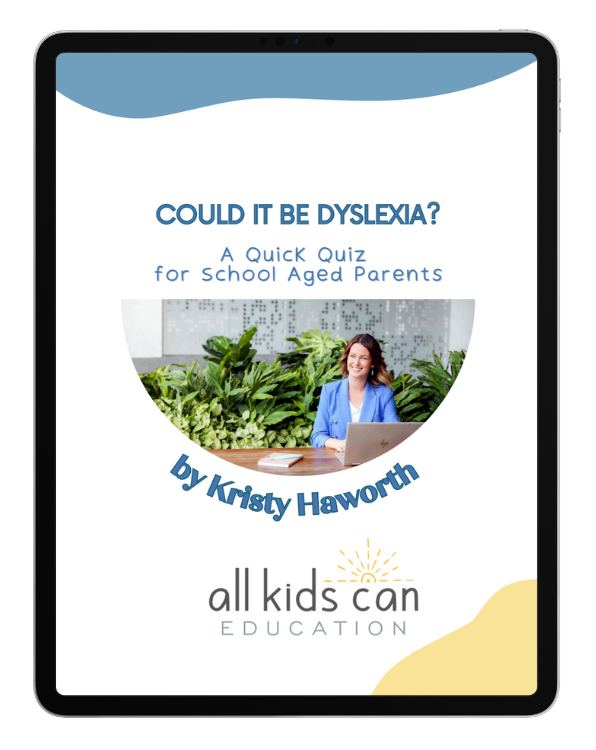Sight Words: What You Need to Know

Amidst various reading strategies that you may encounter from your child's school, the concept of "sight words" may come up . So, let's delve into what sight words actually are and how they can effectively aid children with literacy struggles.
Sight words are the building blocks of reading fluency. These are words that children recognise instantly, without the need to painstakingly sound them out. The magic behind this lies in a cognitive process known as orthographic mapping. Think of it as capturing a mental image of a word, much like developing a photograph. With each exposure, the image becomes clearer until it's etched into the mind, ready for quick recall.
However, orthographic mapping isn't a one-size-fits-all process.
Each child's learning pace varies.
How many times does a child need to read a word before it becomes orthographically mapped for instant recall?
Gifted learners may require as little as 1 - 4 exposures.
Typical readers might need 4 - 14 exposures.
Struggling readers might need 14 to 40 exposures of that same word,
Those with learning difficulties such as dyslexia, might need 40 to 200 exposures of the same word for the brain to go through the process of successfully orthographically mapping that one word.
Now with this perspective, you can see why repeated reading practice is so integral to the development of reading skills.
These mental snapshots of words (or orthographically mapped words) form the cornerstone for building reading fluency and comprehension.
But here's where the path diverges.
When faced with sight words, it's important to differentiate between decodable and irregular words. Often, children are presented with a list of words to memorise, a mix of words that can be phonetically decoded and irregular words that don't adhere to standard phonetic rules. This approach can inadvertently hinder the development of decoding skills, steering children toward mere memorisation.
Relying solely on memorisation can lead to challenges down the road, particularly when children encounter more complex vocabulary. Their memory capacity is likely to become strained, leading to reading difficulties as they grapple with a growing array of unfamiliar words.
In addition to this, if memorisation has been the only way that they were enabling reading for themselves, they will also have limited decoding skills due to the fact that they have not been practiced in developing this skill.
This is when the cracks start to show, usually at around 8 to 10 years of age. The complexity of the vocabulary increases and the ability to memorise every word becomes unrealistic.
So what can we do to avoid or assist this?
To provide effective assistance, it's imperative to teach both decodable and irregular words using distinct strategies.
Decodable words should be approached through the letter-to-sound method, fostering a strong foundation in decoding. Meanwhile, irregular words require a different strategy – identifying the non-phonetic part of the word, underlining it, and emphasising its memorization.
By embracing this dual-pronged approach, children gain the tools needed to read decodable words fluently and to tackle irregular words with confidence. This equips them with a well-rounded foundation, safeguarding them against future reading hurdles when faced with intricate texts.
Sight words hold a vital role in the reading journey of children, especially those grappling with literacy challenges. By mastering the art of recognising words swiftly and effortlessly through orthographic mapping, struggling readers can embark on a path to enhanced fluency and comprehension. Through an amalgamation of decoding and memorisation strategies depending on the word type, parents can be the guiding force that empowers their children to become confident, proficient readers.
We have a free irregular word resource on our website if you want to get the first 100 irregular words to teach your child.
As always, reach out if you have any questions.
Stay connected with news and updates!
Join our mailing list to receive the latest news and updates from our team.
Don't worry, your information will not be shared.
We don't spam. We will never sell your information, ever.








